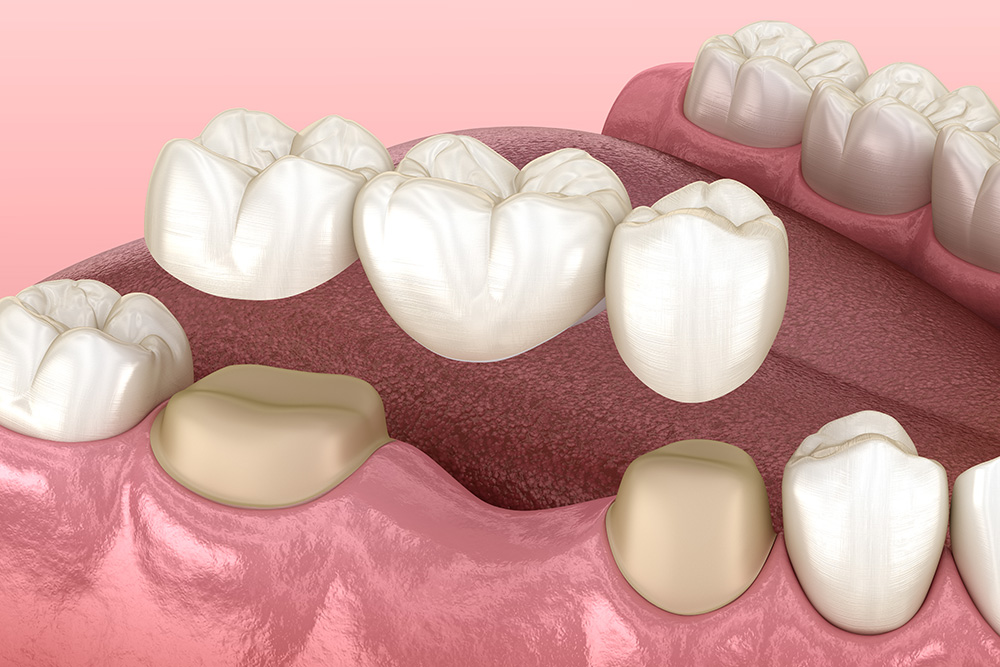Bridges

If you have one or more consecutive missing teeth, then a dental bridge could be the right restorative treatment option for you. Dental bridges have many benefits and many versatile features that make them a great choice to meet the needs of a variety of different patients.
What Is a Dental Bridge?
A dental bridge is a restorative treatment designed to replace one or more missing teeth, as long as all missing teeth are in a row. It consists of one or two anchors that attach to either the patient’s permanent teeth or dental crowns and a pontic of replacement teeth that bridges the gap between the anchors.
The Benefits of Dental Bridges
Dental bridges offer many benefits for patients who want to replace one or more missing teeth in a row:
- Replace lost teeth and fill in gaps
- Stop neighboring teeth from shifting into the space left behind by the missing tooth or teeth
- Provide stimulation to the jawbone beneath the opposing teeth when a person bites down
- Prevent occlusion (bite) problems and other damage from occurring to neighboring teeth
Additionally, dental bridges supported by implants also provide additional stimulation to the jawbone where the teeth are missing, which helps prevent the bone from deteriorating, resulting in an altered appearance and possible harm to nearby teeth.
Types of Dental Bridges Available at Oakwood Dental
We have several different types of dental bridges available. The one that’s right for you depends on the location of the teeth you are replacing and your personal preferences.
Traditional Bridge
A traditional bridge has one or two dental crowns for anchors (depending on the bridge’s location in the mouth). With a traditional bridge, these crowns are designed to fit over the patient’s natural teeth that are adjacent to the gap of missing teeth. To achieve a comfortable, natural-feeling fit, the two natural teeth need to be shaved down so that the dental crowns cement perfectly over them.
Maryland Bonded Bridge
A Maryland bonded bridge differs from a traditional bridge in the way it is affixed in the mouth. Rather than using two dental crowns as anchors, this bridge attaches to neighboring teeth with wires and tooth-colored composite resin.
Implant-Supported Bridge
An implant-supported bridge features one or two crowns designed to fit over dental implants, rather than over natural teeth.
This type of bridge offers the added benefit of stimulating the jawbone and preventing it from deteriorating. However, getting an implant-supported bridge is lengthier than that of a traditional or Maryland bonded bridge because it requires the patient to also undergo the process of getting dental implants.
Cantilever Bridge
A cantilever bridge is a bridge with just one anchor that secures its pontic. This type of bridge is appropriate for patients missing one or more teeth at the end of an arch where there is only one tooth available for attachment.
Learn More About Smile Restoration With Our Bucyrus Dentists
If you think that a dental bridge might be the right tooth-replacement option for you, we welcome you to contact Oakwood Dental to schedule a smile restoration consultation with one of our dentists. Dr. Attila Nagy or Dr. Michelle Nagy can talk with you about your expectations for treatment and evaluate your oral health to help you determine the best smile restoration treatment plan to help you achieve your goals.
